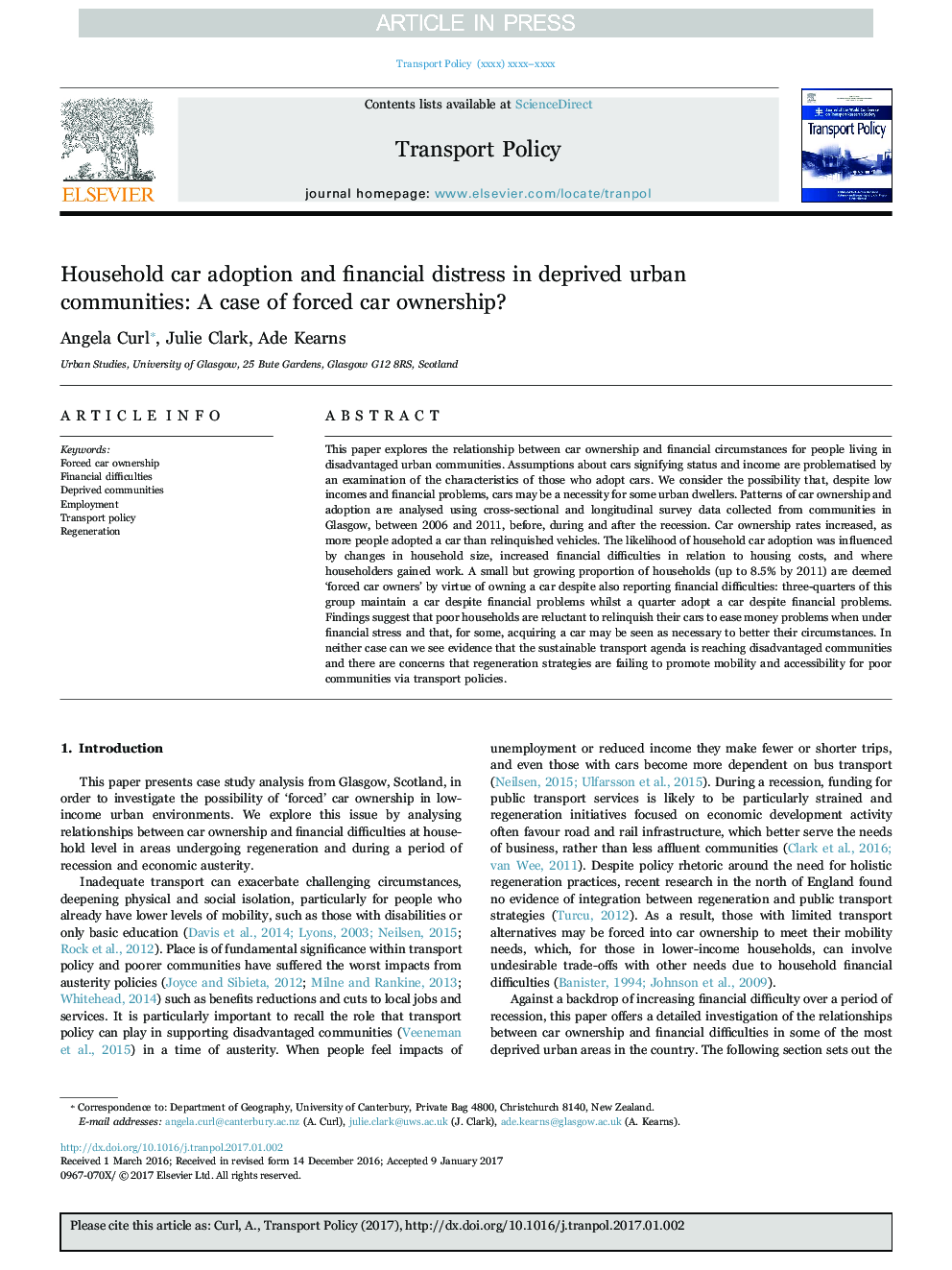| Article ID | Journal | Published Year | Pages | File Type |
|---|---|---|---|---|
| 7497122 | Transport Policy | 2018 | 11 Pages |
Abstract
This paper explores the relationship between car ownership and financial circumstances for people living in disadvantaged urban communities. Assumptions about cars signifying status and income are problematised by an examination of the characteristics of those who adopt cars. We consider the possibility that, despite low incomes and financial problems, cars may be a necessity for some urban dwellers. Patterns of car ownership and adoption are analysed using cross-sectional and longitudinal survey data collected from communities in Glasgow, between 2006 and 2011, before, during and after the recession. Car ownership rates increased, as more people adopted a car than relinquished vehicles. The likelihood of household car adoption was influenced by changes in household size, increased financial difficulties in relation to housing costs, and where householders gained work. A small but growing proportion of households (up to 8.5% by 2011) are deemed 'forced car owners' by virtue of owning a car despite also reporting financial difficulties: three-quarters of this group maintain a car despite financial problems whilst a quarter adopt a car despite financial problems. Findings suggest that poor households are reluctant to relinquish their cars to ease money problems when under financial stress and that, for some, acquiring a car may be seen as necessary to better their circumstances. In neither case can we see evidence that the sustainable transport agenda is reaching disadvantaged communities and there are concerns that regeneration strategies are failing to promote mobility and accessibility for poor communities via transport policies.
Related Topics
Social Sciences and Humanities
Social Sciences
Geography, Planning and Development
Authors
Angela Curl, Julie Clark, Ade Kearns,
